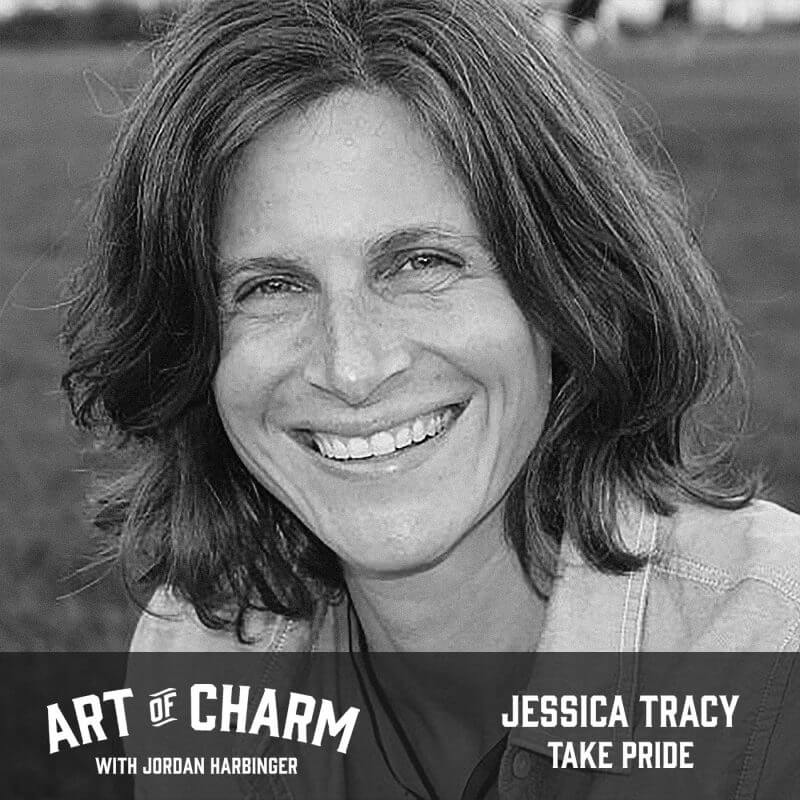Jessica Tracy (@ProfJessTracy) is a professor of psychology at the University of British Columbia in Vancouver, Canada, where she also directs the Emotion & Self Lab. She is the author of Take Pride: Why the Deadliest Sin Holds the Secret to Human Success.
The Cheat Sheet:
- Pride is a universal human emotion and a force that can be harnessed to help humans succeed — it’s a key ingredient to confidence.
- Understand the difference between hubristic and authentic pride — why we should seek out one but try to minimize the other.
- Learn how pride intersects with grit (per episode 526 guest Angela Duckworth).
- Identify pride to gain an advantage in shifting our own behavior and knowing how to react to others.
- Discover how the statuses of dominance and prestige are affected by pride.
- And so much more…
[aoc-subscribe]
While considered one of the biblical seven deadly sins, pride — of the right dosage — can be a boon. After all, confidence — unquestionably a quality for which we all strive — relies on pride.
Jessica Tracy, psychologist and author of Take Pride: Why the Deadliest Sin Holds the Secret to Human Success joins us to explain the two forms pride takes, which one to avoid and which one to pursue, and what effect pride has on our interactions with others. Listen, learn, and enjoy!
More About This Show
According to psychologist Jessica Tracy, author of Take Pride: Why the Deadliest Sin Holds the Secret to Human Success, there are two kinds of pride: one is good and promotes well-being, and the other is bad and ultimately unhealthy. It’s like cholesterol.
Authentic pride is “the pride that you feel when you’ve worked really hard for an accomplishment or an achievement that’s important to you and important to your sense of self,” says Jessica. “It typically makes you feel a genuine sense of self-confidence.”
Hubristic pride is “the pride that’s much more about arrogance, egotism, conceitedness; we often identify it in other people…but we do feel it in ourselves as well,” Jessica says. This is the pride that manifests in unwarranted overconfidence, and is linked to a lot of psychological problems.
“People who…feel this kind of pride tend to have poor social relationships,” says Jessica. “They don’t care so much about others. They’re unempathic. As a result, they don’t have great friendships or personal relationships or romantic relationships. Whereas authentic pride is really great for all that stuff. Authentic pride makes us want to like others, be close to others, and help others — and it helps build our relationships.”
Hubristic pride often comes about as a way to cope with insecurity. We may even realize deep down that the internal dialogue we have with ourselves to justify this kind of pride rings false, but we wield it defensively in ways that have negative consequences like bullying and other antisocial behavior. We may even believe in the grandiose sense of self we’ve built and expect others to treat us accordingly — reacting with confusion, anger, or worse when they don’t.
If we’ve grown up with a sense of hubristic pride, trying to become aware of it and minimize its harmful effects can be especially difficult because it’s ingrained into how we view ourselves. As psychologist Bill Swann identified in his self-verification theory, “we don’t like it when people see us in a way that doesn’t resonate with how we see ourselves — even if they see us…better than we see ourselves,” says Jessica.
That is, even someone with low self-esteem who displays the side effects of hubristic pride wants others to validate their low self-esteem. If you’ve experienced things from this perspective, you probably know it doesn’t help if someone’s telling you you’re great; it doesn’t actually bolster your confidence, and it makes you feel like nobody really understands you.
Listen to this episode of The Art of Charm in its entirety to learn more about how cognitive dissonance plays into breaking out of — or sticking with — hubristic pride, what we can do to pursue authentic pride, the difference between domination and prestige as forms of status, the purpose of pride in human evolution and how it crosses cultures, and lots more.
THANKS, JESSICA TRACY!
If you enjoyed this session with Jessica Tracy, let her know by clicking on the link below and sending her a quick shout out at Twitter:
Click here to thank Jessica Tracy at Twitter!
Resources from This Episode:
- Take Pride: Why the Deadliest Sin Holds the Secret to Human Success by Jessica Tracy
- Emotion & Self Lab
- Jessica at Twitter
- Self-Verification Theory by William B Swann, Jr.
- Srdja Popovic | Blueprint for Revolution (Episode 548)
- Angela Duckworth | Grow Your Grit (Episode 526)
You’ll Also Like:
- The Art of Charm Challenge (click here or text 38470 in the US)
- The Art of Charm Bootcamps
- Best of The Art of Charm Podcast
- The Art of Charm Toolbox
- The Art of Charm Toolbox for Women
- Find out more about the team who makes The Art of Charm podcast here!
On your phone? Click here to write us a well-deserved iTunes review and help us outrank the riffraff!




